Cyberpunk 2077 Review
CD Projekt Red is back with a fantastic new adventure in the dystopian metropolis of Night City.
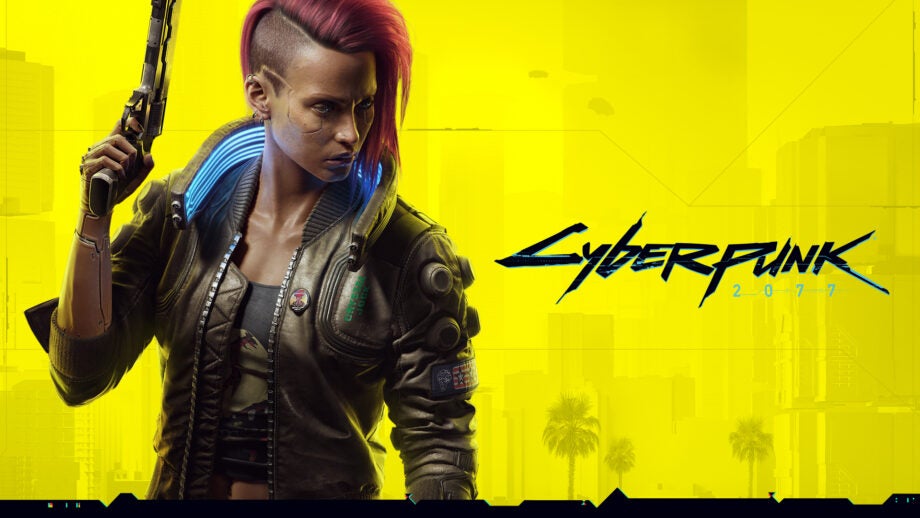

Verdict
CD Projekt Red has created a triumphant RPG experience with Cyberpunk 2077, yet it often falters under the weight of its own ambition thanks to inconsistent writing and narrative
Pros
- Night City is a living, breathing world that is truly breathtaking
- V is an excellent lead character with so much potential depth
- All of the gameplay systems are nuanced and rewarding
- Dialogue and storytelling are strong and impactful
Cons
- Braindance mechanic is underutilized
- Female character writing feels misogynistic at times
- Bugs
Key Specifications
- Review Price: £49.99
- Developer: CD Projekt Red
- Release Date: December 10, 2020
- Platform: PS4, Xbox One, Google Stadia, PC (version tested)
- Genre: RPG
Editor’s Note: This review is based on a full playthrough of the PC version of Cyberpunk 2077, and the copy has now been updated to reflect testing across PS5, Xbox Series X and PC.
The future doesn’t look bright. Our planet lies at the precipice of a climate crisis, while superpowers stew in political instability and oppressive legislation that continues to question the very definition of our own freedom. CD Projekt Red’s Cyberpunk 2077 takes such developments to their most extreme conclusion, depicting a society where we are little more than pawns in the whims of corporate capitalism.
Humans exist to consume products, fuelling the economy as the very megacorporations that keep them alive are driving the world closer and closer to ruin. Having already been torn apart by nuclear warfare and global warming, Cyberpunk 2077 thrusts us into a metropolis that is nothing more than a lavish monument to corporate greed: Night City. You play as V, a mercenary who is pulled into a dark conspiracy that threatens to either tear the corporate world apart, or allow it to grow more powerful than ever before.
CD Projekt Red aims to pick apart the cynical existence of corporate greed and consumerism in an open-world RPG that pushes the genre forward in so many fascinating ways, pulling you into a dystopian hellscape that takes hold and refuses to let go. It’s an interactive achievement of the highest order, but such technical accolades can’t detract from a somewhat misogynistic approach to female character writing and a core narrative that feels inconsistent and lacking in dramatic consequence.
Related: Best PS4 Games
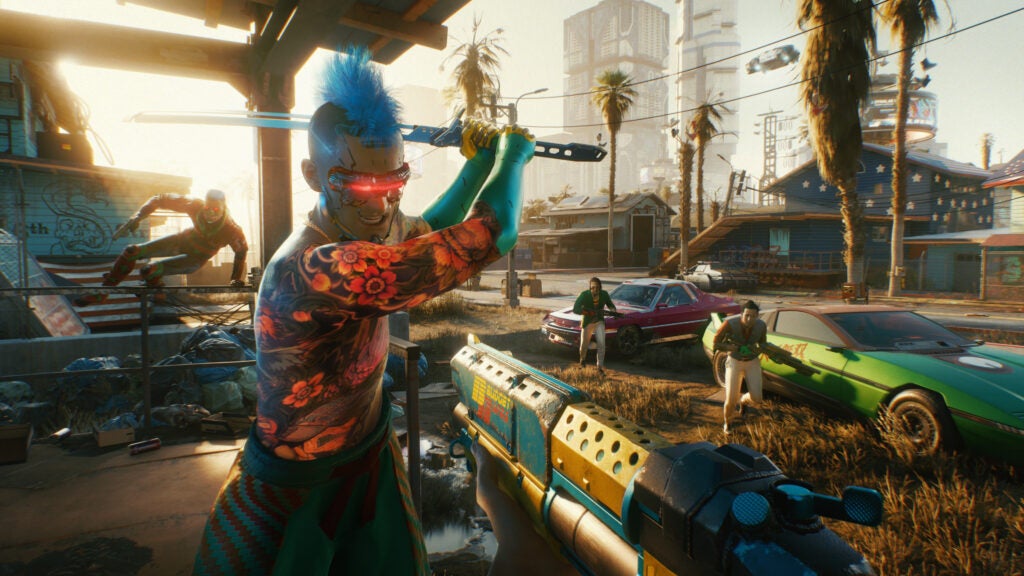
V can begin his or her journey in Cyberpunk 2077 as a Corpo, Nomad or Streetkid. The path you choose will not only determine where our fledgling mercenary grew up, but also how they react to situations throughout Night City. Unique perspectives can be taken throughout the narrative, providing insight that might otherwise be lacking. I chose Street Kid, beginning my journey as a wise-cracking chick who already knew her way around Night City.
In the opening moments I was greeted by established relationships with colossal gang leaders and law enforcement, making it feel like my character existed long before I picked up the controller. I was now simply taking the reigns and choosing exactly where to go next.
While I only completed one playthrough for this review, I dipped into the other introductions and the variety is genuinely striking, changing how you approach exploration of Cyberpunk’s world in the hours that follow.
As a Street Kid the opening hours were dominated by the seedy Red Light District and bustling central streets, while a Nomad will leave their abode in the badlands seeking a new, more prosperous life in Night City. Once you’ve stormed past the titlecard, the tunnel of quests will become more linear, but having a number of hours to craft a virtual identity that feels thoroughly unique was spectacular. It’s a new level of depth for mainstream RPGs that I hope continues.
Related: Final Fantasy 16
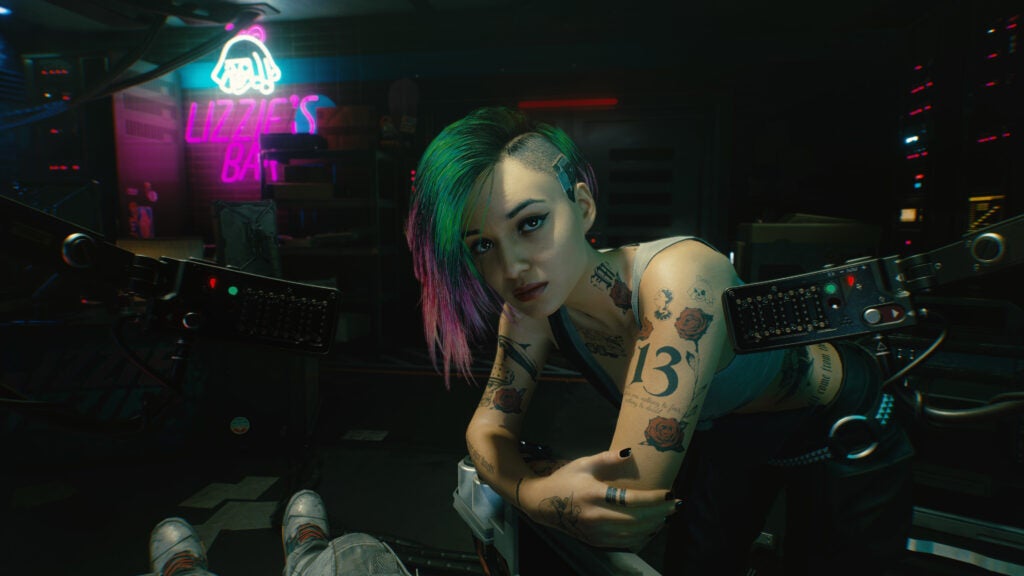
2077 has been fraught with controversy since its initial reveal, especially in regards to transphobia and its treatment of different cultures. Such scrutiny was justified as CDPR seemingly doubled on such issues in its pre-release marketing. As a trans woman, I jumped into the game with much trepidation, but was pleasantly surprised by the inclusiveness of its character creator. I was able to create a V who looked and felt like me, right down to explicit details such as breasts, voice and genitalia.
Never has a character creator made me feel so valid and represented as a person, but such a triumph doesn’t take away from the commodification of queer bodies that is spread throughout Night City like a plague. In the world of Cyberpunk 2077 people like me are defined by their physical attributes, bulbous penises and breasts are spread across in-game billboards and vending machines in a way that feel woefully gratuitous.
CDPR is right to show how this dystopian world is treating us like objects in pursuit of profit, but the storytelling rarely ventures to places that challenge such views, meaning this imagery exists to shock and nothing more. The world’s relationship with sex is equally as troubled, coded in a heteronormative way that objectifies men and women alike, but female bodies are put in the firing line far more often.
If Cyberpunk 2077 depicts a society where transpeople can exist without worry, why does it still maintain so many of the tired tropes we’ve failed to upheave in the 21st Century? The situation worsens as the narrative progresses, with excellent female characters being twisted into nothing more than tragic objects of motivation for male characters like Johnny Silverhand who exhibit all the worse qualities of this battered and broken society.
Related: PS5 vs Xbox Series X
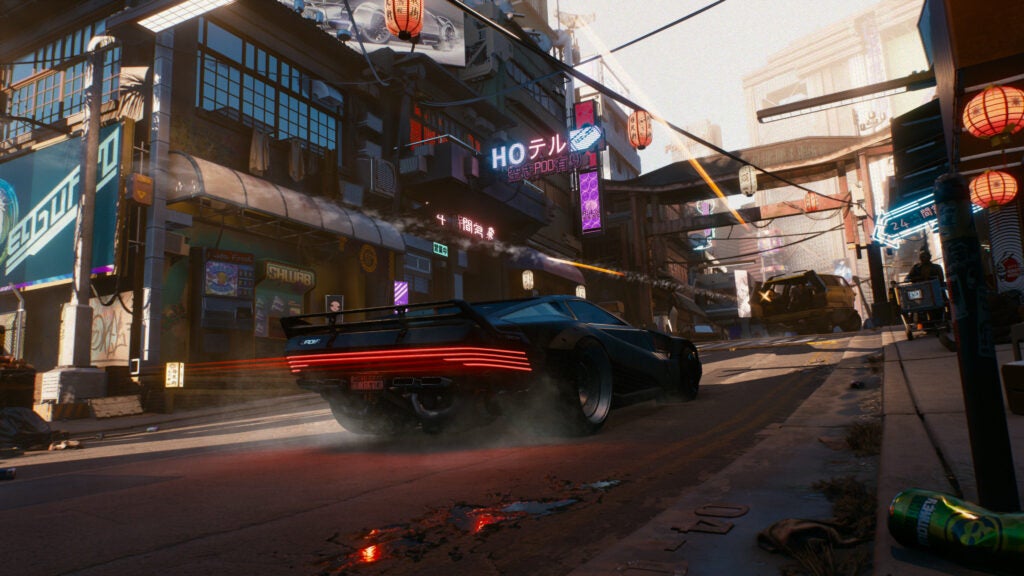
Dialogue options underpin almost every decision in Cyberpunk 2077. V’s moral compass is naturally optimistic and good natured, so you’ll simply need to steer them towards different shades of good and evil. They can diplomatically defuse a situation with adversaries or pull out a firearm and blast away any problems. Each decision is valid, but you’ll need to accept whatever consequences might surface as a result.
The writing and delivery is a step above anything the studio has done before, with all characters delivering stellar voice performances that are confidently grounded in Night City. Such praise also extends to Keanu Reeves as Johnny Silverhand, a legendary rockstar who finds himself implanted into V’s subconscious in the game’s opening hours. Beginning as an aggressive douchebag intent on taking over your body, Silverhand slowly grows into an endearing friend, someone I was happy to fight alongside right up until the end.
It’s unfortunate his backstory feels rather underdeveloped, addressed in stilted flashbacks and sudden changes in attitude that seldom feel earned. It’s a consequence of an RPG experience where I tackled everything at my own pace, often putting aside the main quest during my 40+ hour playthrough. Flaws aside, Johnny Silverhand is an excellent foil to V’s moral positivity, often trying to sway your judgement in a direction that matches his own motivations.
Keanu Reeves sells his performance with enough conviction that I cared for Silverhand, even if certain parts of the delivery can steer into a monotone droll. Other standout characters include Panam, a charismatic Nomad who wishes to outgrow the traditions put in place by her family. There’s also Evelyn Parker, a sex worker who finds herself caught up in the twisted criminal underworld with no conceivable way out.
Related: Breath of the Wild 2
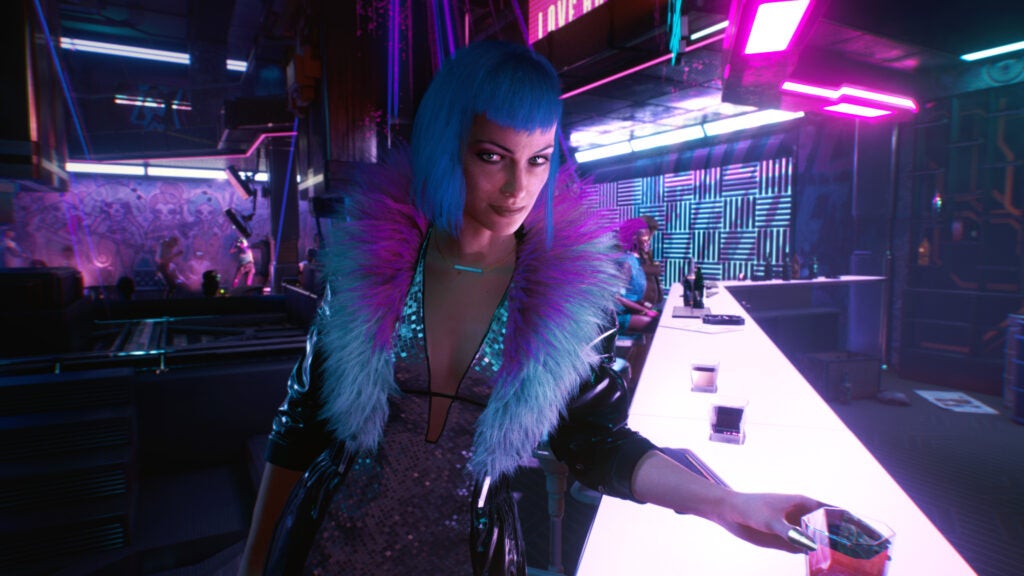
I alluded to CDPR’s clumsy handling of female character writing earlier, but it’s worth touching upon further. It’s handled with the subtlety of a jackhammer, with the agency of characters such as Evelyn Parker and Silverhand’s own love interest – Alt Cunningham – undermined in service of furthering their male counterparts.
Trauma is drastically overlooked as they are flaunted as sex objects for the player to ogle before being thrown aside like they’re nothing. Night City swallows people up and spits them out, alive or dead, but with little in the game’s narrative fighting back against this brutal mantra it often falls flat.
Otherwise, the storytelling is wondrous, eliciting a sense of pace, execution and importance of player decision more than anything I’ve ever played. It felt like every dialogue decision and combat encounter mattered, shaping my interpretation of V into something that felt truly unique. From a combat perspective, I crafted her into a gun-slinging hacker who would disable security cameras before wiping out enemies with a single silenced bullet.
Cyberpunk 2077 has a fluid class system, meaning you can adopt any of its endless combat, hacking and traversal mechanics in whatever order you like. Firearms range from traditional guns to more eccentric smart weaponry which can lock onto foes for utmost precision. The sheer amount of weapons available is staggering, allowing for a varied approach to each new situation.
Related: Halo Infinite
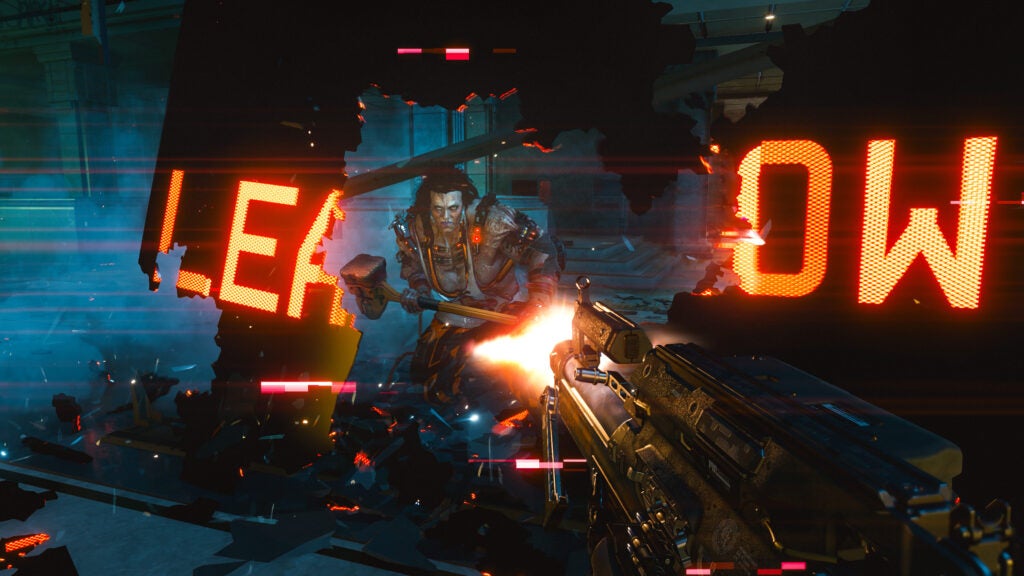
I loved the personal angle, so found myself roaring into battle with a flaming shotgun instead of sitting back with a sniper rifle. Hacking can be used in conjunction with stealth to navigate the majority of encounters, so much so that physical contact can be avoided altogether.
Traps and cameras can be disabled before sneaking up on unsuspecting guards and hurling them into bins, or you could be slightly more sinister and fry their brains with a burnout hack. This degree of versatility is rather absurd, and I finished the game without even touching a vast range of upgrades and cyberware, with the skill tree begging to be explored further.
Much like The Witcher 3, the majority of enemies go down within a few seconds if you’re willing to just spam them with basic attacks, taking away most incentive to experiment with different hacking and combat abilities. I’d recommend playing on a harder difficulty setting if you want to be a true mercenary, forced to think on your feet instead of waltzing into most hideouts as a bullet sponge with bad fashion sense.
Starting my adventure with nothing more than a pistol and eventually evolving into a cybernetic killing machine with blades for hands and the ability to melt your mind with a single glance is an immense power fantasy, and one Cyberpunk 2077 is more than happy to deliver. When compared to other RPG shooters, this is in a league of its own.
There’s also Braindance, an inventive mechanic that has you diving into recordings of past events to analyse the actions of characters and gather evidence before embarking on wider quests. These moments are brilliant as you analyse audio, heat signatures and objects across sprawling environments, yet are few and far between in the main quest. I wish it was used more, since it shows CDPR at its most mechanically ambitious.
Related: Best Xbox Games
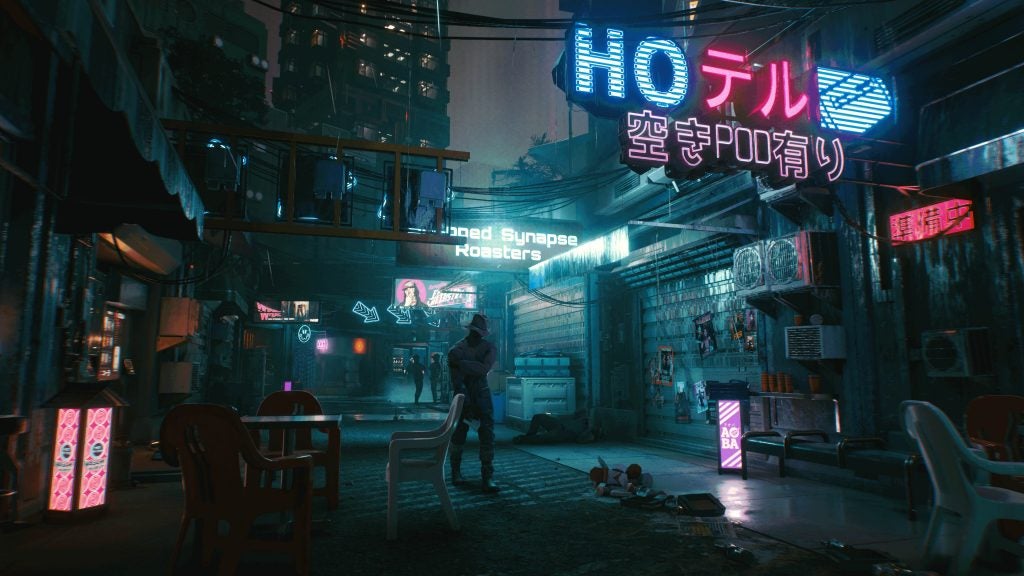
Night City is smaller than The Witcher 3’s fantastical landscape, but is far more dense and packed with things to do. Exploration of the metropolis is a joy, with optional missions and enjoyable distractions surfacing with a welcome sense of dynamism. I often found myself stumbling upon potential side quests while navigating more important missions.
You can get around by foot, car or fast travel. I never found myself using the latter, enamoured by the sights of Night City enough that I happily navigated familiar locales time and time again. The vastly populated central streets of the city juxtapose beautifully with the desert badlands, all of which have been poisoned by corporate greed in different ways.
The wilderness has become home to endless piles of trash as humanity fails to find ways to recycle it, twisting a picture of tranquil peace into one of sordid squalour. Despite this pessimism, the people who call these places home add a small glimpse of hope to proceedings. Whether they be fixers offering quests or citizens trying to carve out a living, everyone you stumble across is brimming with life despite their circumstances.
Relationships in Cyberpunk 2077 are more nuanced than the studio’s predecessors. Sex is no longer the ultimate goal when growing closer to a major character. It’s certainly possible, but the primary focus sits on the internal struggles of those you decide to make part of your life. Playful flirting could lead to sudden rejection, establishing the importance of consent even in a dystopian world such as this.
Related: PS5 Review
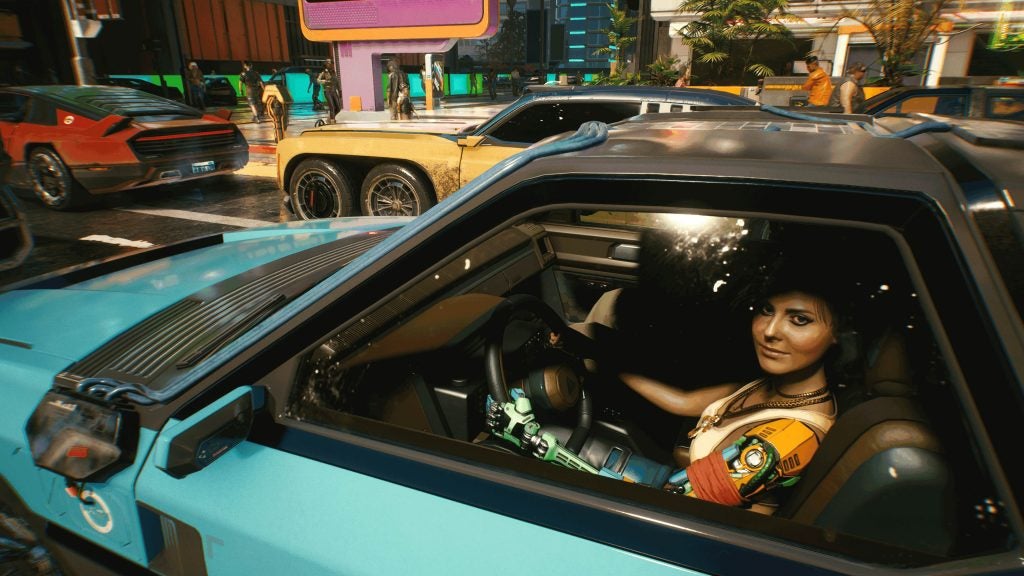
I felt myself growing closer to people, embarking on quests not because of the rewards involved, but instead that I was in a position to help, to make things better for those who needed me. I’ve rarely received a phone call in a game, been informed of a friend’s plight and immediately went to meet them, like I had some form of virtual urgency to meet. Sure, such missions often involve plenty of crime and murder, but you can’t have everything.
Claire is one character who stood out to me, a woman who handles the underground racing scene in Night City. Her narrative arc begins with a fascination to conquer a racing tournament, but ulterior motives relating to her late husband soon become clear, as does her gender transition. Claire confides in V that she is a transgender woman, having decided to become her true self with the help of her deceased partner. It’s a touching gesture, but one that makes her identity a defining character trait, which to me felt lazy.
In a world that takes advantage of women and queer bodies in such an abundant manner, a character who identified as such taking the fight to corporations in the smallest of ways would have been fantastic. There are so many opportunities to reinforce Cyberpunk 2077’s thematic elements beyond “corporations are bad” but they’re all tossed aside in favour of a central narrative that simply isn’t that compelling.
Unless you’re invested in the life of Johnny Silverhand, who is a chauvinistic pig with motivations that never feel effectively explained, much of the core plot is muddled. It has some wonderful standalone missions I adored, yet never reaches the emotional highs of The Witcher 3’s closing moments. You could argue I need to catch up on the table top lore, but the average player simply won’t do such a thing.
Related: Xbox Series X Review
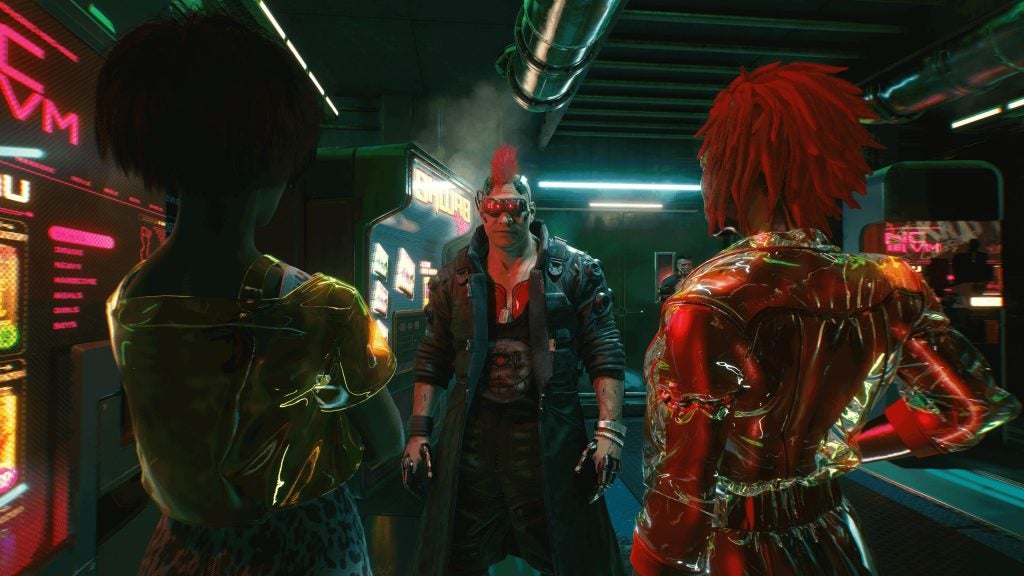
I took pleasure in standalone arcs that focused on certain characters, putting aside V’s quest for immortality in favour of something more meaningful. Fortunately, quests like this are plentiful, and I was never lost for engrossing stories and inventive mission design to lose myself in. CDPR is a supremely talented creator, and its finest and most abrasive qualities are on full display here.
Given its infamous development history and woeful tales of crunch, it’s worth touching on how Cyberpunk 2077 performs. I played the PC version and found the experience to be a mixed bag. Playing at 4K with high settings I was met with a level of performance which ranged from rock solid to mediocre.
The inner streets of Night City would bring my PC to a crawl, which is currently sporting an AMD Ryzen 5 1600 and an RTX 2080Ti with 16GB of memory, so it’s certainly no slouch. Those hoping to utilise ray tracing features will need far more power to play with, although it’s arguably worth the sacrifice since it’s positively gorgeous. It’s a shame that bugs beyond graphical limitations also bring the experience down.
Cyberpunk 2077 is awash with technical issues, ranging from animation problems where characters float through integral story sequences to combat encounters where enemies simply fail to register your presence, surrendering to a barrage of bullets as repetitive voice lines spew from their unmoving lips. Moments like this let 2077 down, and hopefully they will be fixed in future updates.
Related: Horizon Forbidden West
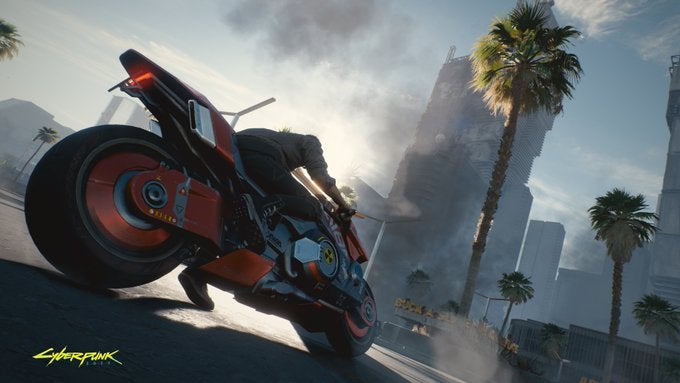
I’ve now had time to test Cyberpunk 2077 across PS5 and Xbox Series X via backward compatibility. The next-gen upgrade isn’t set to arrive until 2021, yet the current experience across both platforms is surprisingly impressive. While it doesn’t hold a candle to its PC counterpart, those hoping to immerse themselves in Night City on console likely won’t be dissapointed. At the time of writing, PlayStation platforms target 60fps with a fixed resolution, and there are no additional graphical modes to be found on base consoles, PS4 Pro or PS5.
It’s an unfortunate omission, with visuals coming across as blurry and lacking in detail when compared to PC and Xbox Series X. It’s far from a dealbreaker, yet visual elements are a distraction when textures randomly pop into the environment and shadows look blocky and unattractive even when from afar. In comparison, Xbox Series X appears sharper and more vibrant. You likely won’t notice the difference in action, but it was enough for me to favour Microsoft’s console.
You also have greater versatility with two graphical modes: Quality and Performance. Quality aims for a 4K resolution while locked at 30 frames per second, while performance mode hits a comfortable 60fps with a more conservative resolution target. Both modes are greater, and will ultimately come down to personal preference. Cyberpunk 2077’s exploration and combat isn’t demanding on reflexes, so quality mode offers a more than satisfactory experience for those who want things to look beautiful. On the flipside, performance mode is equally as impressive.
Should I buy Cyberpunk 2077?
CD Projekt Red has created a triumphant RPG experience with Cyberpunk 2077, but it often falters under the weight of its own ambition.
Exploring Night City is an unparalleled joy, depicting a dystopian world with an unmatched level of detail in the genre. I lost myself for hours, but such immersion also unveiled a number of deeper issues with its lacklustre themes and problematic writing.
Of all the games out there, this one should have something to say, but it too often doesn’t. Putting this aside, the combination of freeform exploration, frantic combat and stellar storytelling combine to craft an RPG that is a new watermark for the genre.


